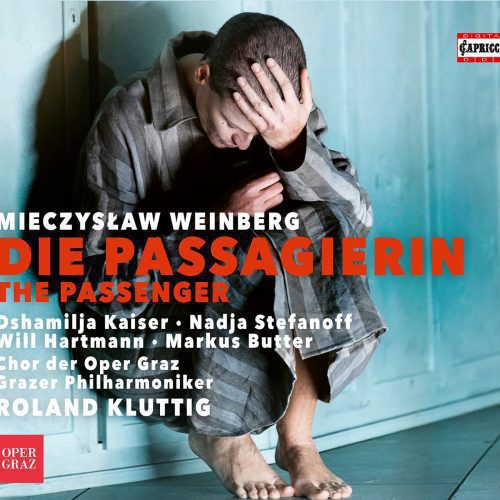Do you like Shostakovich? You absolutely must listen to the music of his friend and colleague Weinberg, Mieczyslaw by name! The same vibrant energy, the same post-romantic/modern tonal language, with a few perfectly calibrated incursions into an atonality that serves only to magnify the drama, the same lyricism overflowing with melancholy, the same melodic inflections rooted in popular and folk music. All this, however, with a personality of the lesser-known that never fades before the posterity of the more famous.
This recording of the opera Die Passagierin (The Passenger) is an event. We are confronted with a major work, which I would even call essential, in the panorama of the 20th-century repertoire.
“I will never tire of the pleasure that Weinberg’s La passagere offers me. I have heard it three times, I have studied the score, and each time I have realized even more strongly the beauty and grandeur of this music.”
Dmitri Chostakovitch
The opera, which is quite short, is in two acts and tells the story of Lisa, sailing to Brazil on a transatlantic ship with her husband Walter, in 1959. Lisa encounters a passenger who triggers the repressed memories of the Second World War years. The passenger strangely reminds her of Marta, a prisoner of Auschwitz, the camp where Lisa was a guard. Ghosts from the past reappear in her mind, her unacknowledged but oppressive guilt derails her mind, and her shared responsibility for the horror of that time is projected before the listener in dramatic flashbacks.
The plethora of orchestration (including three bassoons, six horns, saxophone, celesta, guitar, jazz drums, accordion, and more) never descends into unnecessary sonic orgy. Weinberg is a fine musical dramatist and uses his very broad palette as the source of a subtle and delicate, yet emotionally powerful, expressiveness. Here is a drama steeped in sarcasm as much as the dark lyricism of a master storyteller. A few flashes of light, even playfulness, also dot their harmonies here and there.
2010 version, produced in Bregenz:
The soloists are solid and convincing, the orchestra is splendid. You will certainly be interested in a video recording of this opera, made in 2010 in Bregenz and conducted by the dazzling Teodor Currentzis, also indispensable. But the purely audio recording treated here has the advantage of immersing the music lover in Weinberg’s discreet orchestral opulence and the personal drama that transpires in the voices of the soloists. An opera that must imperatively enter the natural repertoire of our lyric temples.
As I said, it’s essential.
























